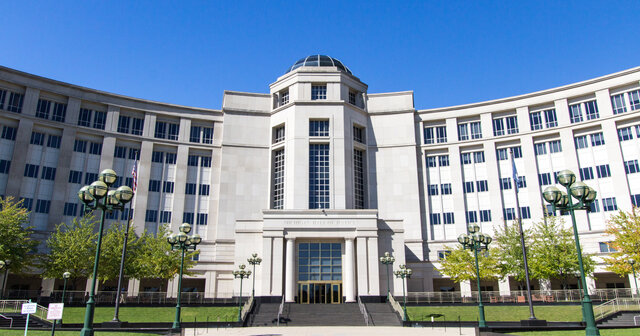
In 2019, Stephanie Wilson drove with Malcolm Smith to a house and then left. A police officer who was staking out the property as an alleged drug house followed the car and then pulled it over. A search found five empty syringes, but no drugs or other evidence. Police did not test the syringes.
The officer presumed the syringes had been used and seized the vehicle for four months. Though the two were not charged with any crime, Wayne County then forfeited (took ownership) of the vehicle. This is common in Detroit, where law enforcement seizes vehicles, charges people $900 to get them back or sells them if they don’t pay.
The Institute for Justice, a libertarian law firm that has fought civil asset forfeiture for decades, represented Stephanie Wilson in a lawsuit to get her property back and limit the use of unjust takings. The Michigan Supreme Court just handed IJ a big win by ruling against the government.
Legislative changes have limited forfeiture, and this court decision should reduce it further. In brief, the court ruled that Michigan law says a forfeiture can only be effectuated when a vehicle is used (or intended to be used) to buy or sell drugs.
Any attempt by the government to take ownership of property or assets, at least as it relates to drug forfeitures, must meet that standard.
Michigan law governing civil asset forfeiture has too many loopholes, entangling innocent people and making it too easy for law enforcement to go after cash and vehicles rather than focusing on drugs and major criminals. The state statutes on this issue need to be cleaned up.
Permission to reprint this blog post in whole or in part is hereby granted, provided that the author (or authors) and the Mackinac Center for Public Policy are properly cited.
Get insightful commentary and the most reliable research on Michigan issues sent straight to your inbox.

The Mackinac Center for Public Policy is a nonprofit research and educational institute that advances the principles of free markets and limited government. Through our research and education programs, we challenge government overreach and advocate for a free-market approach to public policy that frees people to realize their potential and dreams.
Please consider contributing to our work to advance a freer and more prosperous state.

Donate | About | Blog | Pressroom | Publications | Careers | Site Map | Email Signup | Contact